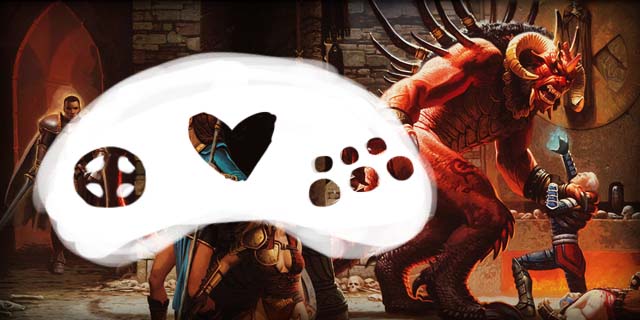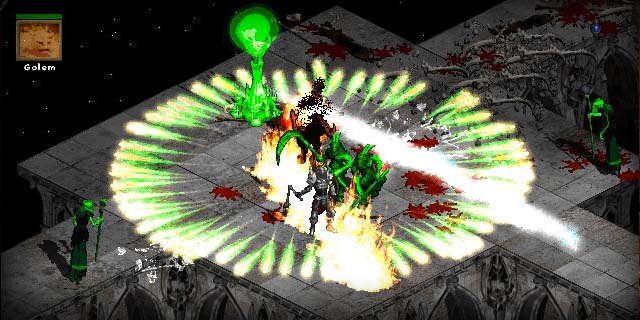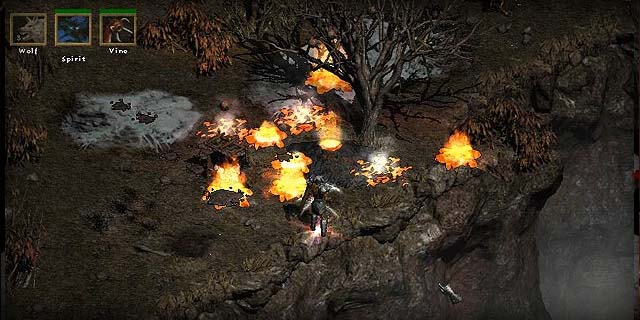
In the My Favorite Game series, get to know us better as staff writers share the game they love most and why.
Part of what really makes a game fun for me is an open-ended experience. Probably one of the reasons I play so many PC games is that, either by design or through modding, many games offer me this sort of thing, while console entries prefer to have a much more defined beginning, middle and end.
My reasons for choosing this game are incredibly varied, and it is very much a case of the whole being greater than the sum of its parts. You will notice I have actually chosen its expansion pack, Lord of Destruction. This is done because I really feel that the pack enhanced the game completely, and is probably one of the best arguments for expanding an existing game through either packs or DLC I’ve come across.
To some, the game is simply a mindless grind-fest, based on repetition and random chance. In a way, I understand, as those are its core mechanics. But there was something special about the presentation of Diablo II that got me to see past that.
For one? The social experience. When the game was released, following a few early glitches, playing games with random players in an online game was far less likely to turn into a string of colorful language than it is today. You could join a game working on your current area, and most people were pretty welcoming. Though looting was a frenzy, and tended to favour those who could click the fastest, many players were nice about it, and wouldn’t grab stuff they couldn’t use.

As a result, a sort of shadow economy tended to arise between players who started bartering everything except gold, which was easy to get, easy to lose and rather worthless to other players. Though there was no organized hub to meet players and not even an in-game mail system until several years after its release, Diablo II managed to build a huge community around its online play, becoming bigger than most MMOs of its time. There was something so wonderful about playing on Battle.net during the first years of the game, and again following the release of its expansion pack, that really can’t be explained. I had hoped for this to return with the release of Diablo III, but sadly this was not to be.
Diablo II also represented a very well-balanced application of the carrot-and-stick approach that kept people playing. Loot dropped just frequently enough to keep people excited about playing, but not so frequently that you spent all your time deciding between pieces of equipment. It’s a very delicate balance; if you make it too rare it’s an intolerable timesink, too common and it becomes boring and meaningless. Diablo II managed to hit this happy medium perfectly, and finding a rare piece really felt like an accomplishment, even if it was purely based on random chance. This also led to the idea of “magic find” armor, gear designed to maximize the quality of loot drops. Small things like this really added to my gameplay, as it gave me more goals to work toward.
Diablo II kept me coming back with numerious game-changing mods after its online community began to decline. Though Blizzard had never designed the game for modding, the community found a way, and produced some very entertaining (and often difficult) re-imaginings of the game, though none truly managed to improve upon the original.

It was one of Blizzard’s first forays into the MMO genre, though the world was not persistent, and each game could only have eight players in one world. Initially, Blizzard hadn’t really put much thought into the idea of any sort of economy or trade between players on a grand scale, simply aiming to allow players to play together, using characters stored on their servers to prevent cheating. Though it did everything wrong in terms of economy and player interaction, it taught Blizzard much about developing a good MMO, which they would put to use in World of Warcraft.
I really feel that Diablo II is the best experience I’ve had with a video game. As such, while I did love this game, I would caution against picking it up. The community has faded greatly, and the game did not age well. It was a wonderful experience, but it was about the community and the state of online gaming at the time, and that’s something that doesn’t exist anymore.



















